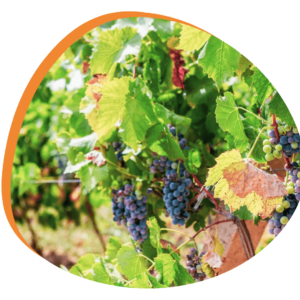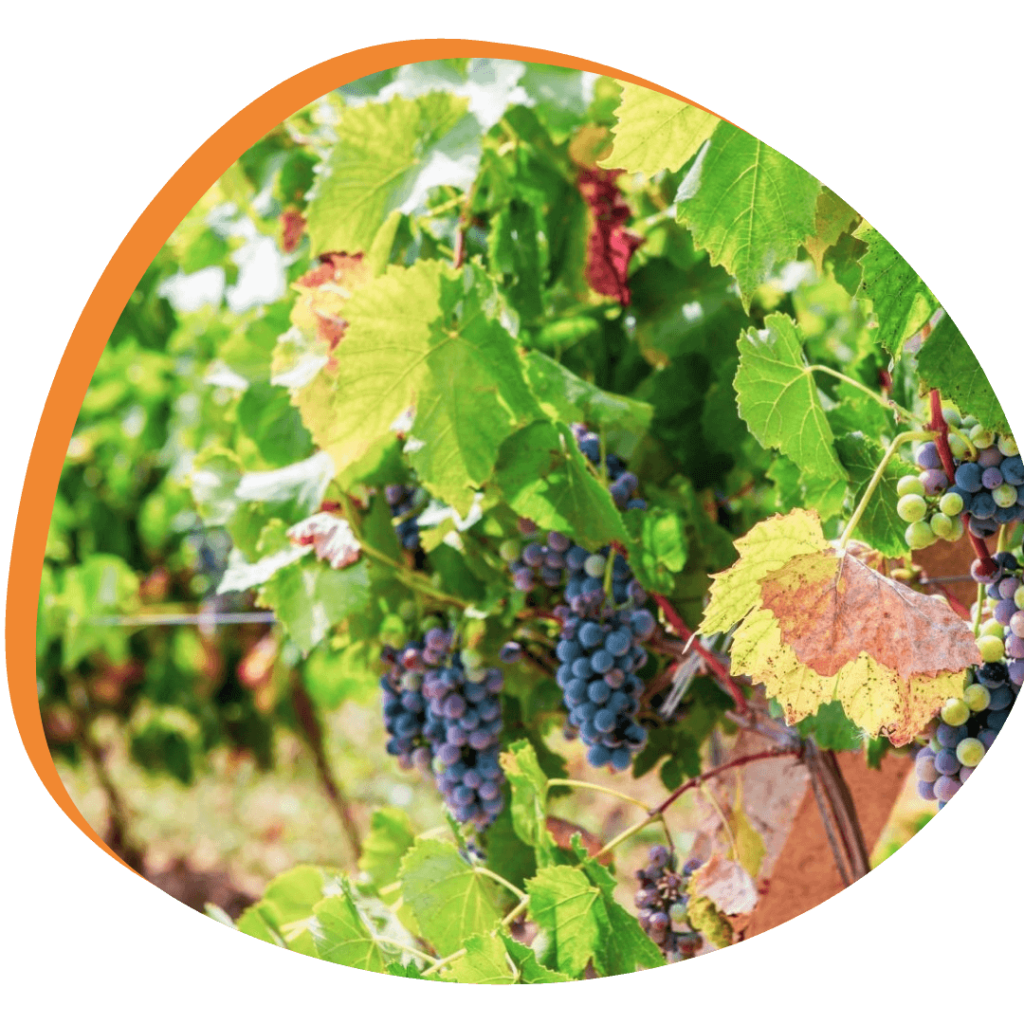The scientific work behind grape cultivation.
Vinyes Domènech winery has successfully improved the health and functionality of its soil, based on the BeCrop® diagnostic tool. Key indicators such as the presence of pathogenic elements, nutrient availability and mobilization, the presence of phytohormones, stress adaptation and carbon sequestration, have improved significantly with the adaptation of agricultural practices since the first soil functionality analysis in 2017. In this article, we will provide details of this success story.
Since 2002, when we founded the Vinyes Domènech winery in the southern part of the Catalan Priorat , the Domènech-Nogueroles family had a singular vision: the winemaking project would aim to preserve and enhance the estate’s heritage while respecting the protected natural space in which it was immersed.
Such a unique ecosystem, about one hundred hectares of forest on the property, deserved intelligent integration with the processes carried out both in the vineyards and in the winery.
Good viticultural practices and integration into this landscape of high ecological value have allowed Vinyes Domènech to improve the quality and health of the vineyards and, consequently, produce quality wines. Proof of this was in the form of the recognition of “Qualified Vineyard Wine” by Incavi and DO Montsan t and the Vine-Grower Award of the same Denomination of Origin awarded in 2019.

However, the journey was not easy. At Vinyes Domènech, they faced several difficulties, such as the presence of pathogenic fungi in the vine wood, the appearance of Blackfoot and Petri disease, the lack of vigor in the oldest existing vines, compact and shallow soils with little organic matter and lack of assimilation of nutrients by the plants, nutrients present in the soil, but blocked.
In its constant search for better and more sustainable solutions in its agricultural practices, Vinyes Domènech decided in 2017 to enlist the services of Biome Makers to develop a detailed study of the functionality of the soil in one of its four terraces: the 28th. The objectives of this study were broad: to monitor the health of the soil, identify potential risks, help those responsible to measure the impact of the use of agricultural inputs and practices and improve them if necessary, and characterize the biological terroir of the plot (an aspect that is usually analyzed only with physico-chemical meters).
However, the journey was not easy. At Vinyes Domènech, they faced several difficulties, such as the presence of pathogenic fungi in the vine wood, the appearance of Blackfoot and Petri disease, the lack of vigor in the oldest existing vines, compact and shallow soils with little organic matter and lack of assimilation of nutrients by the plants, nutrients present in the soil, but blocked.
In its constant search for better and more sustainable solutions in its agricultural practices, Vinyes Domènech decided in 2017 to enlist the services of Biome Makers to develop a detailed study of the functionality of the soil in one of its four terraces: the 28th. The objectives of this study were broad: to monitor the health of the soil, identify potential risks, help those responsible to measure the impact of the use of agricultural inputs and practices and improve them if necessary, and characterize the biological terroir of the plot (an aspect that is usually analyzed only with physico-chemical meters).

The study was carried out using BeCrop, the functional analysis tool based on the study of the soil microbiome and its interactions, whose indicators are biosustainability, soil health and nutrition. Using this diagnostic tool, Bioma Makers was able to detect and confirm the presence of the following problems in the plot: a high concentration of pathogenic microorganisms that could generate disease risks, low adaptability of the vines to stress situations such as sudden or adverse weather changes, and low availability of soil nutrients for the plants.
Based on BeCrop’s exhaustive analysis, a step-by-step guide was created to improve these conditions. First, incorporate beneficial compost into the soil at an optimal maturity, which finds a balance with the microbial life already present in the plot and does not exceed 70ºC in its fermentation process to guarantee the life of microorganisms. Second, reinforce the budding vines with treatments against mold at the foliar level. And, finally, end the incorporation of wood pruning into the soil, an agricultural practice that had been used until then and which, consequently, caused wood diseases.
In 2020, after three years of improved agricultural practices based on soil functionality analyses, Vinyes Domènech decided to commission a second assessment of plot 28 to measure its progress since the first analysis. The evolution of the 2017 and 2020 samplings yielded very interesting results. The functionality of the microbiome, that is, the beneficial functions performed by microorganisms in the soil, increased. Beneficial species in the fight against pathogens increased, which decreased the risk of disease and increased the health of the bed. Blackleg, Petri disease and powdery mildew, among others, disappeared. The availability of nutrients for plants increased: phosphorus and potassium, previously blocked due to lack of solubilization, as well as magnesium, significantly increased their mobilization. The presence of phytohormones and stress adapters increased. Last but not least, the plot went from releasing carbon to sequestering it thanks to a better balance of metabolic pathways, turning the vineyard into a more sustainable space.
After the second analysis gave such surprising results, it was concluded that the mortality of the vineyard is now much lower, that the micronutrient deficiencies have disappeared and the soil is alive. The BeCrop soil functionality tests have been a key factor in guiding the different changes made at the Vinyes Domènech winery. The new agricultural practices have had a positive impact on the vineyard and have helped them implement a regenerative and sustainable system in line with the Vinyes Domènech philosophy of maintaining the balance between the ecosystem and the crop.



